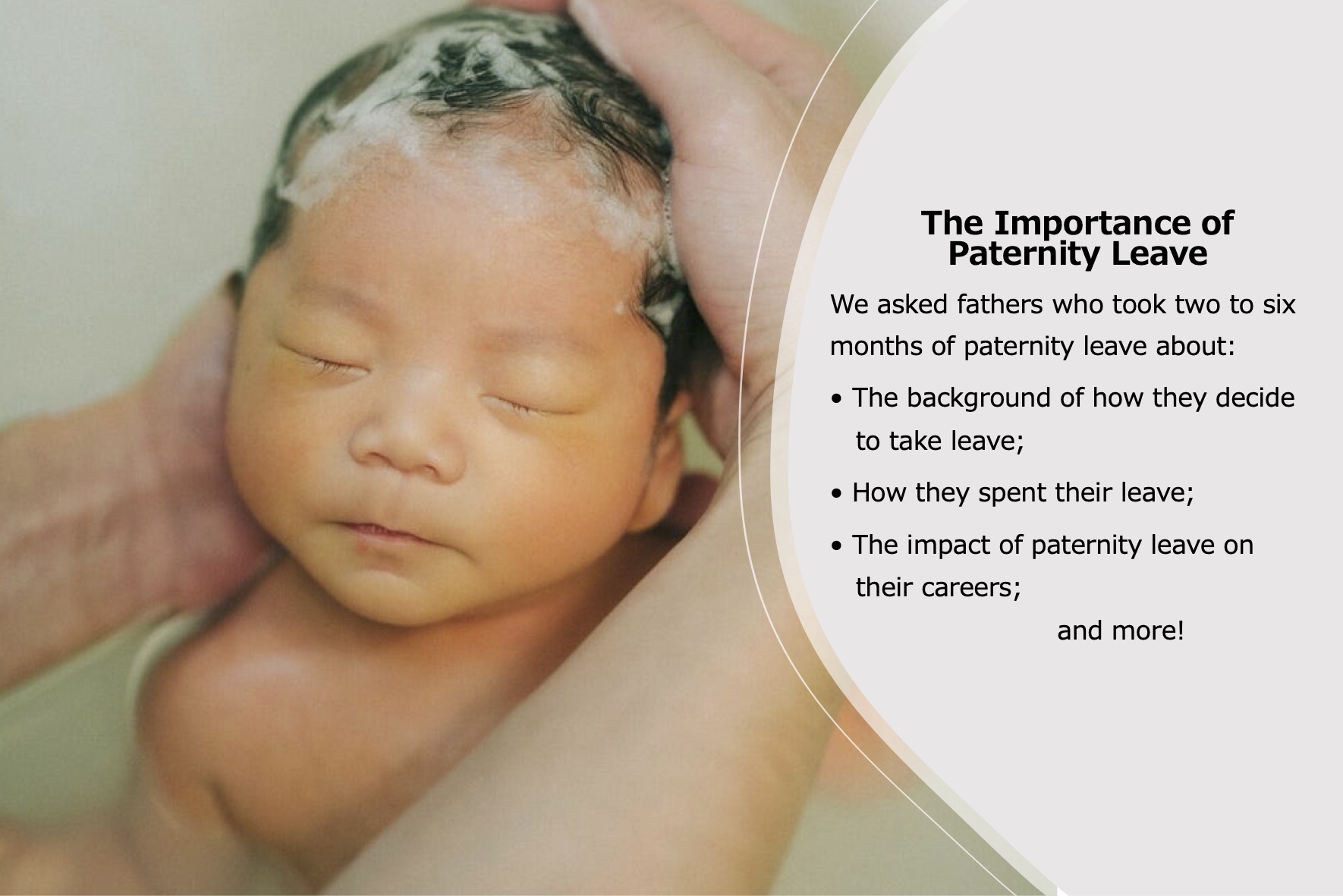Supervisors of Employees who Took Paternity Leave Talk about Creating Organizations for Taking Leave Easily
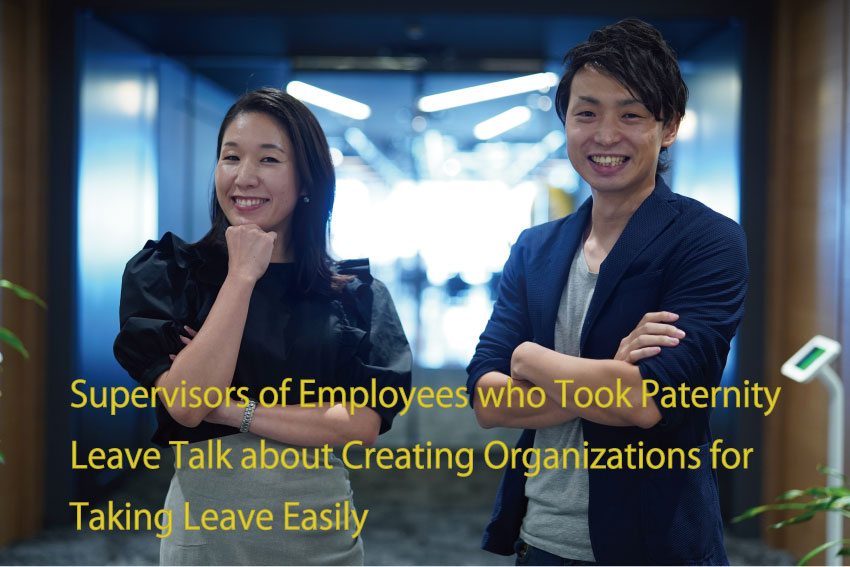
[Notice] Effective October 1, 2023, LINE Fukuoka has changed its company name to LY Communications. Articles published on or before September 30, 2023 were written with our former company name.
At 7.48%, the rate of fathers who take paternity leave in Japan is still low compared to other developed countries. Japan is promoting the use of paternity leave by making revisions to laws related to childcare leave.
According to an investigation by Japan's Cabinet Office, the leading reasons men gave for not taking more than one month of childcare leave were not wanting to cause issues at the workplace (37.2%) and a company atmosphere of not recognizing childcare leave for men (32.9%)¹, so the key to promoting paternity leave seems to be company management creating a workplace where it's easy to take childcare leave.
Previously, we asked two fathers who took two and six months of paternity leave about whether they felt any guilt about taking leave, how they spent their leave, and the impact that taking leave had on their careers. In this issue of LINE Fukuoka Press, we sat down with their supervisors to ask them how they really felt about managing employees who take paternity leave, nurturing the culture in their departments, and tips for business management.
If you're currently a manager, or worried about how you'll be evaluated and can't take the first step to childcare leave, this article may be for you.
■ Status of paternity leave at LINE Fukuoka (for Fiscal Year 2020)
Percentage of employees who took paternity leave: 46.2%
Average number of days taken: 102.6 (Median value: 90 days)
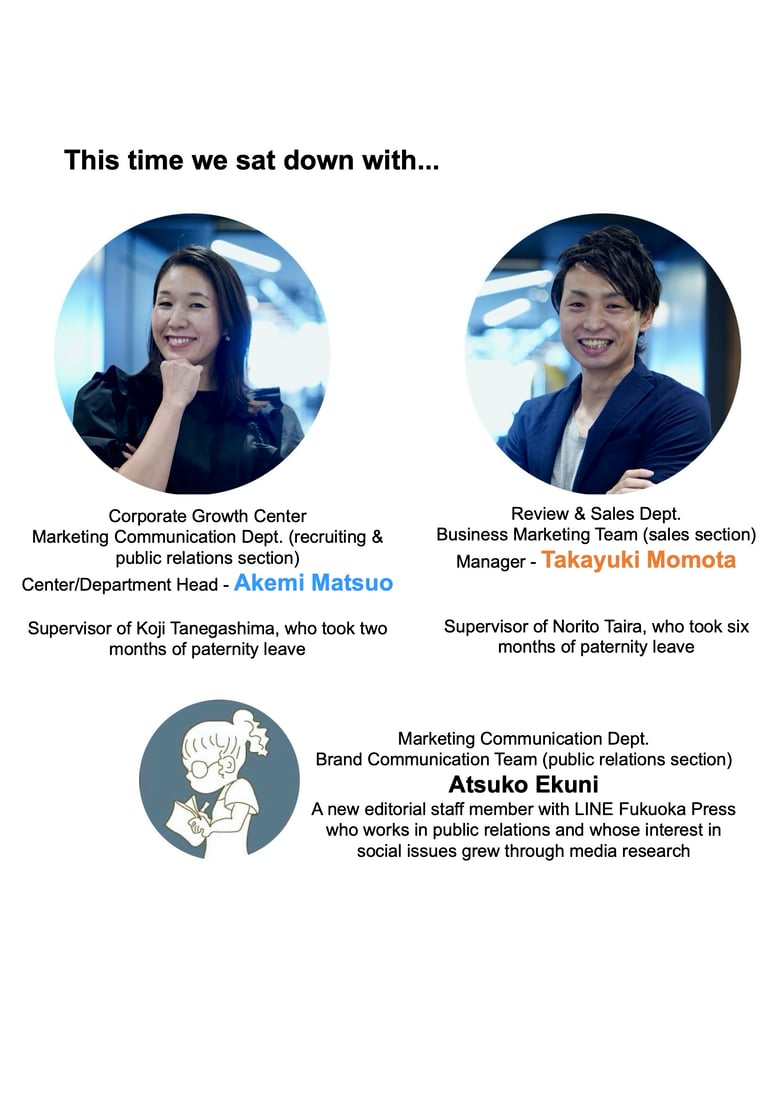
Thoughts about receiving childcare leave consultations
Creating an organization that functions even when someone is on leave
To make it easier for people to take time off, I'm instilling an awareness of our obligation to "take time off" within our department by having every member share their plans for taking paid leave with the team each month. I work to create a culture where taking leave is a matter of course by proactively taking leave myself.
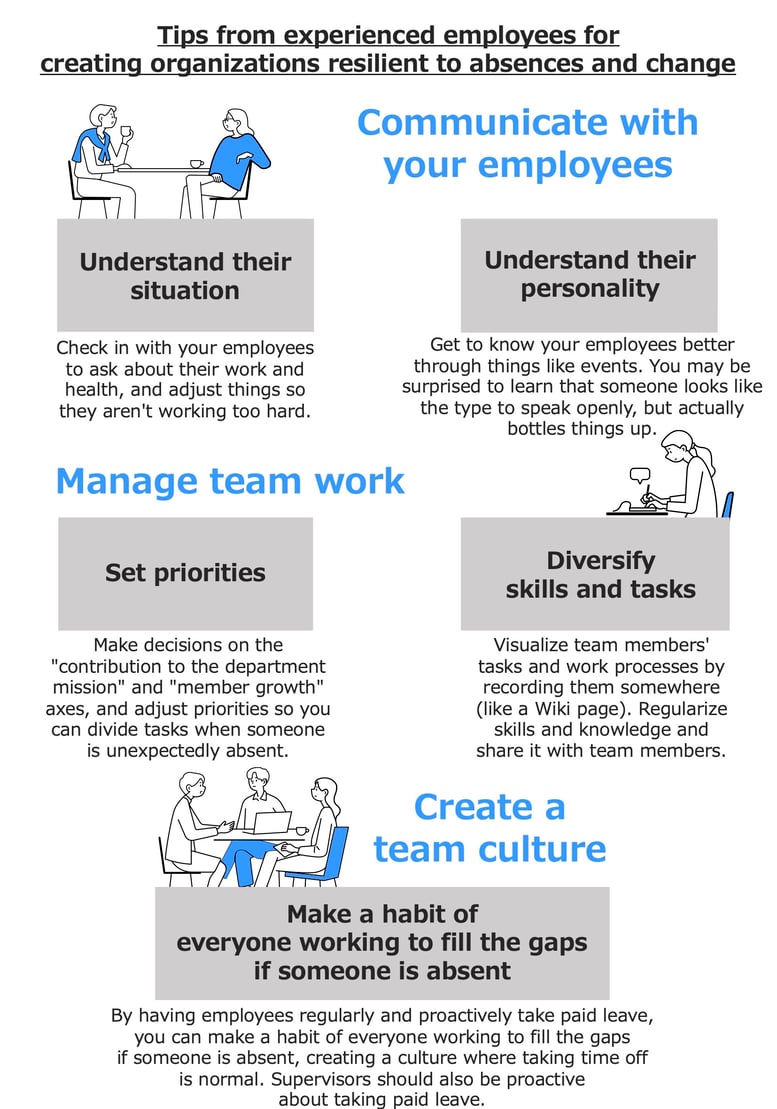
According to a report from an investigation in the status of employment equality between genders, the most common issue that businesses face when fathers take childcare leave is "securing a replacement."²

Matsuo:I'm Mr. Tanegashima's supervisor, and he took two months of leave, but we went about our work without recruiting anyone. We divided his tasks among our other members and also organized their original tasks so they wouldn't be taking on too much of a burden. I took over his managing work, so I also organized my own tasks.
Momota: I'm Mr. Taira's supervisor, and he took six months of leave, but we also divided his clients and tasks among our other members.
This placed a heavier load on our members, but by having multiple people provide support, I think we were able to keep that to a minimum. It made me realize once again that our department has wonderful teamwork. I'm truly grateful to the members that were there at the time.
In the case of our department, if it's difficult to cover something with just the resources we have, I talk to other department leaders and adjust things by having them assign someone.
There were fields where Mr. Taira could shine after he came back, so we didn't open up his position and role. The members who are still around and the newly recruited members gave their best, so we didn't have any problem with our sales achievements dipping.
It's important to set goals that everyone is satisfied with, and as we consider with on-site leaders how they can be achieved, the team members involved do their best every day.
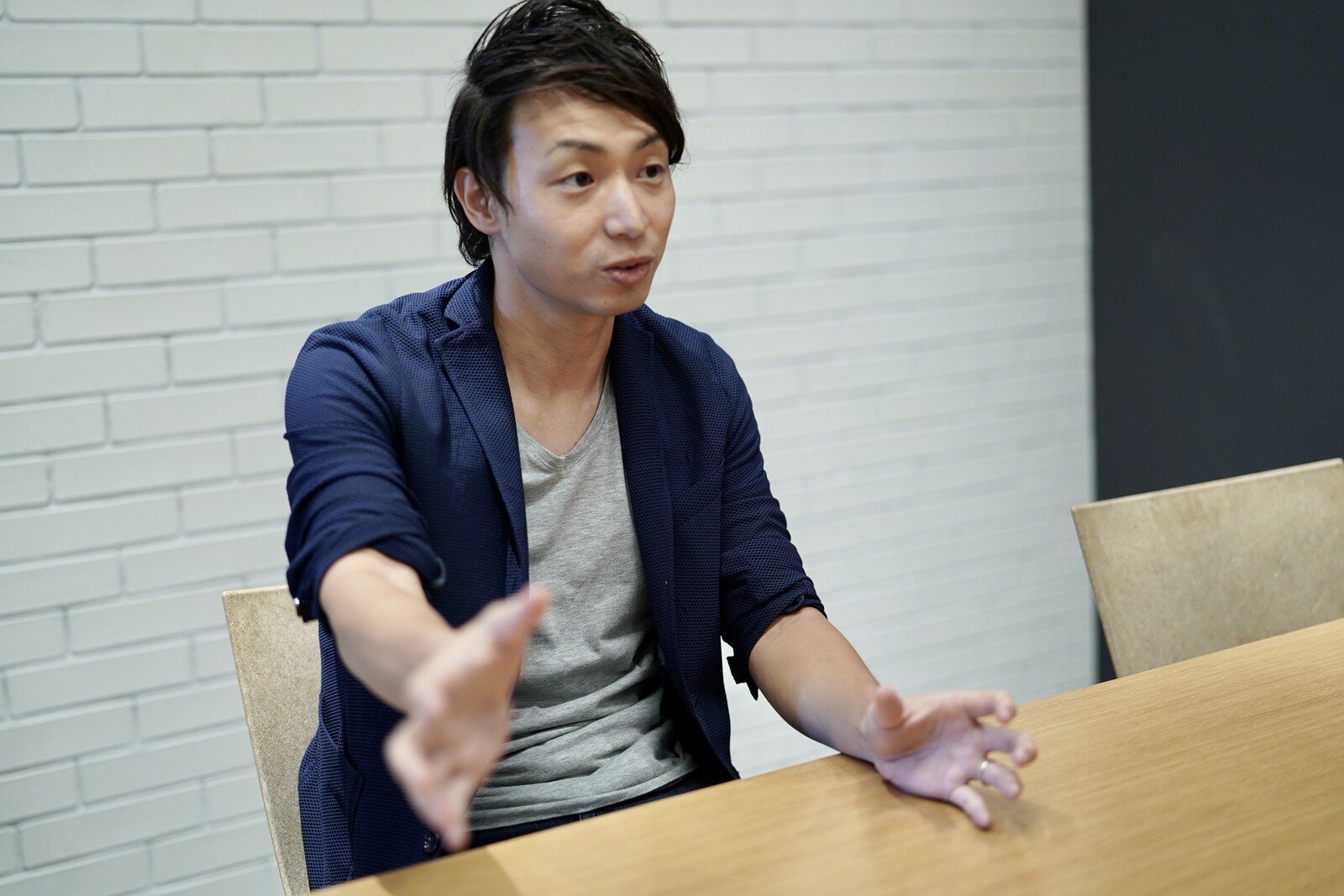
On the other hand, if you don't have enough members even when you can't recruit new talent, managers have to work to make arrangements with other departments...it sounds tough!
Evaluating childcare and work
Additionally, are their different criterion for evaluating employees who are raising children and have to balance their work and private lives compared to employees who work long hours without taking a leave of absence?
If they're working overtime, it means they have a lot of tasks or their tasks are complex, so we judge the situation from multiple perspectives and rethink the work they're taking on.
Some employees may still be unable to take the first steps towards childcare leave due to concerns about the impact it may have on their evaluations or promotions, but how does leave actually impact their evaluations?
However, when you have a child, you can't just return to your previous working arrangements like nothing happened. So I think it's important to build trust within the office before your child arrives.
I took leave when I was a manager, returned as a regular employee, and then stepped back into a managerial role when a new department was created. I was also working shorter hours, but I was conscious of putting out eight hours' worth of results in a six-hour workday.
If you can demonstrate your value to the company and gain credibility, I think you'll be able to create your ideal no matter what environment you're in.
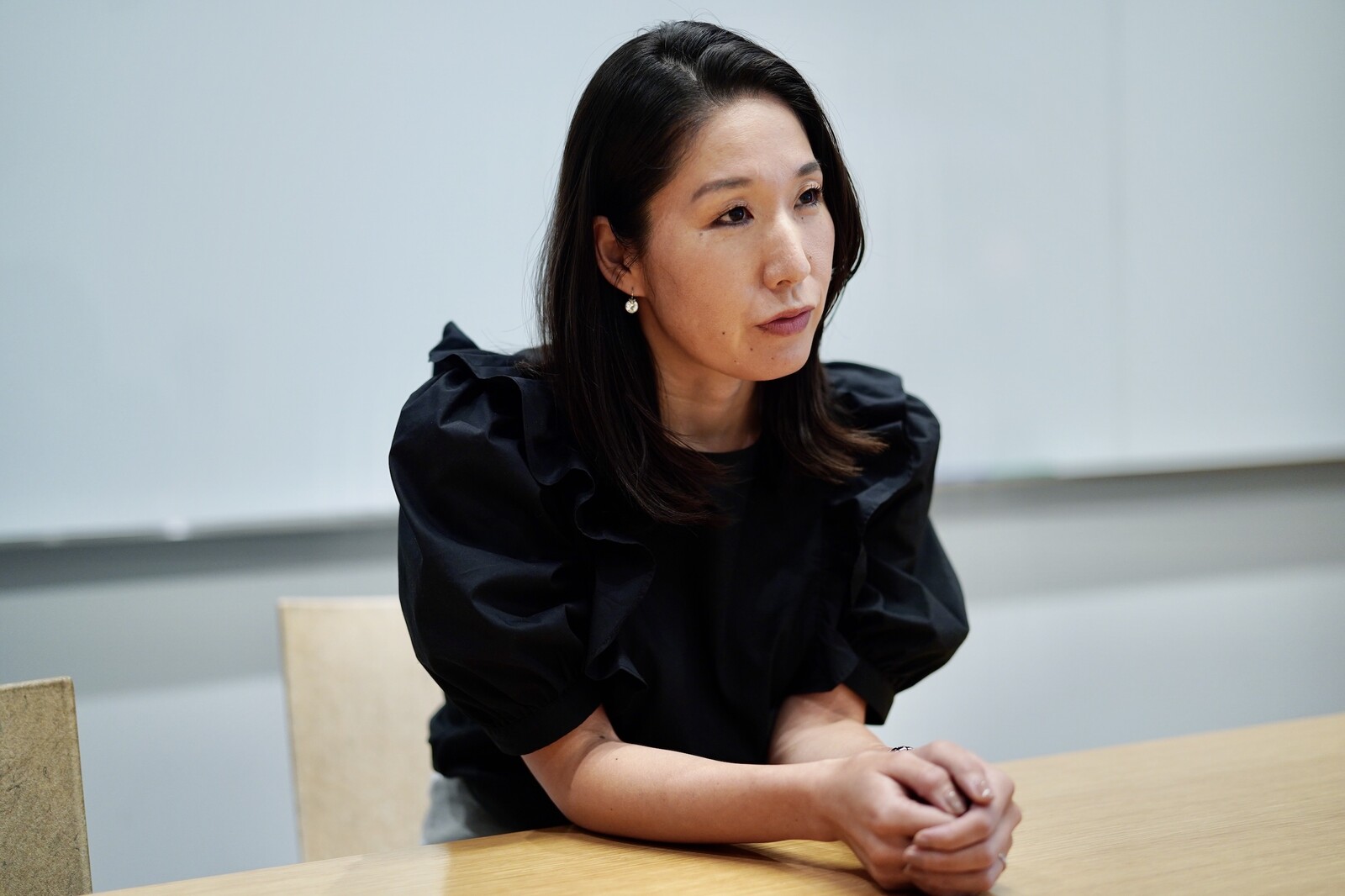
A manager's job is to "figure things out"

As supervisors who have had employees take paternity leave, what are your thoughts on paternity harassment?
Matsuo:It’s a risk management issue. This just happens to be about childcare leave, but there's no way to know when someone's going to have to take a leave of absence due to sickness or needing to care for a family member. A manager's job is to manage risk so that their department can continue to operate even if someone is suddenly absent.
No leader should ever avoid their own responsibilities and injure the pride of an employee by telling them that the department can't function without them.
A department where members can work together for many years also leads to department stability, so I think creating an environment where employees can value their private lives is the first step towards that stability.
Reflection after the first employee in their department took paternity leave
In my team, there still weren't any precedents for people taking childcare leave. So when he asked, I wish that I had spoken to my team and told them that it was fine for fathers to take childcare leave as well.
Related Articles

LINE Fukuoka Office Introduction|A Second Year Employee Introduces the WOWs Packed in the Office!

Changing Jobs During the Pandemic - From Corporate Sales at a Travel Agency to ︎Testing at an IT Company

Need a Break? Head to the Cafe!
